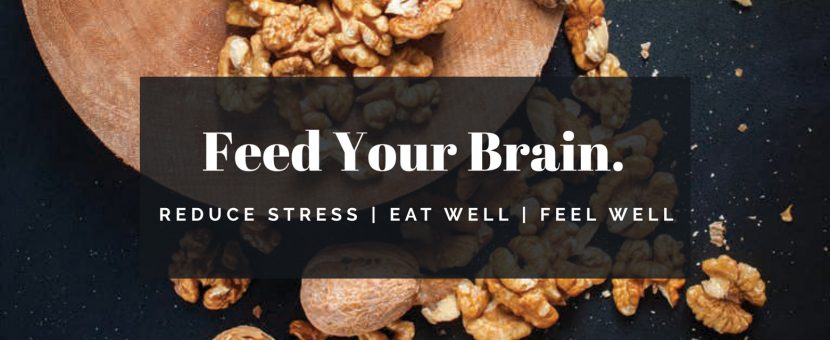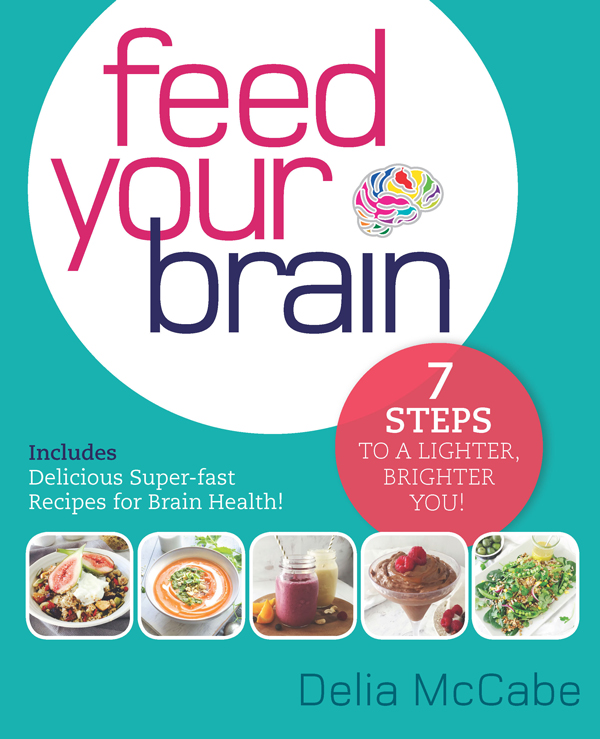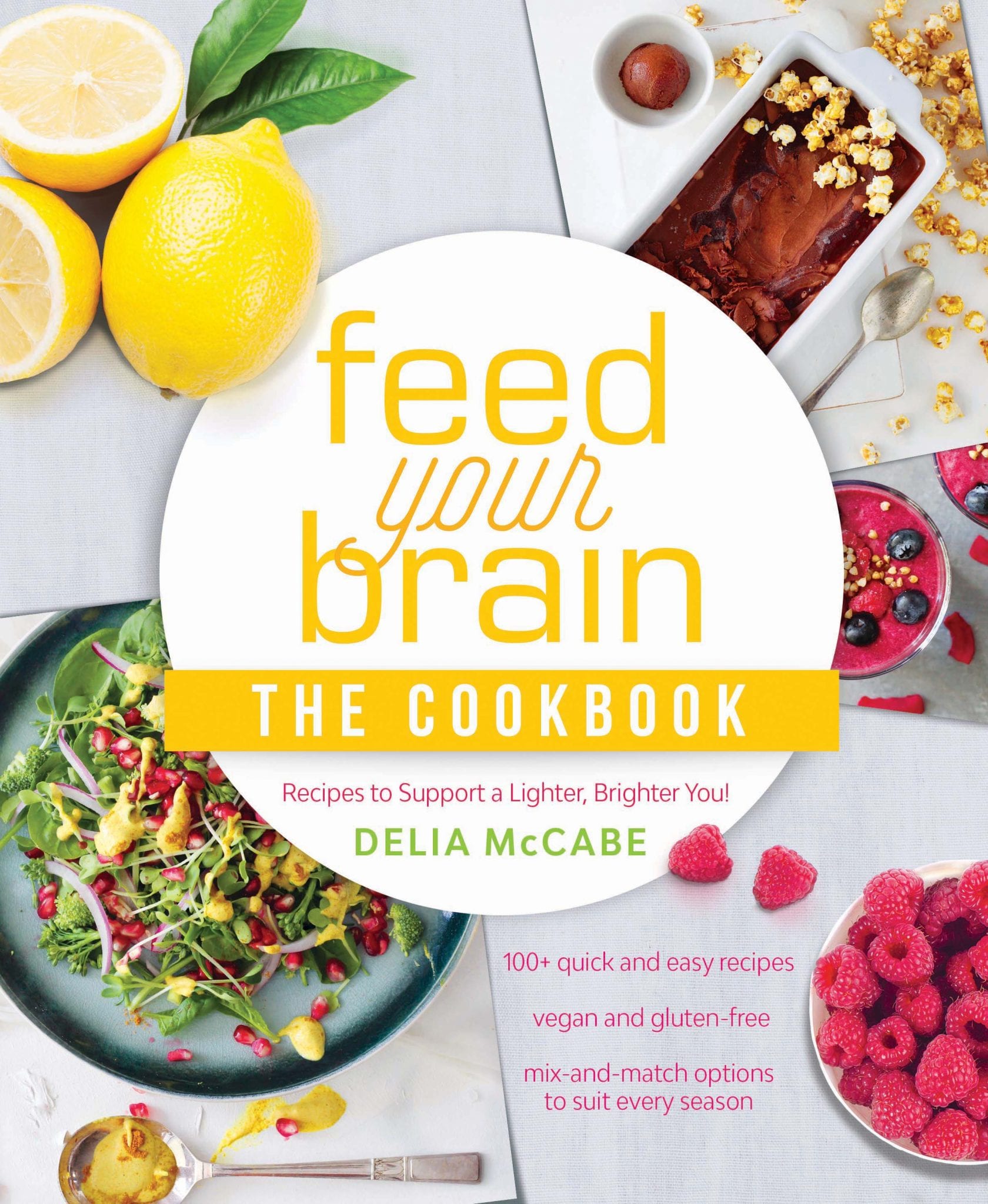Did you know the food you eat can help your brain cope with stress?
We are all facing stress in these uncertain times. Usually, when our body faces stress, our fight or flight response will kick in. We are only programmed to deal with stress for periods of 20-30 seconds; afterall, we did evolve to either run away from danger or become it’s next meal…
The catch? We have nothing to run away from right now, we are being forced to cope with our stress. This means we need to start thinking about dealing with stress in a different way.
Dr Delia McCabe, author of Feed Your Brain and Feed Your Brain: The Cookbook chat’s below about how this stress can affect our blood glucose levels.
This in turn drives us to eat the types of food that do not support our brain function as our bodies attempt to produce aderenline to fight off our stress. Nutrients is consequently diverted away from the good chemicals in our bodies; serotonin and melatonin – ultimately, our bodies are negatively affected and our reactions to stress become quite unhelpful.
Watch below for some tips on just how you can help keep your blood glucose levels stable:
So, what types of food will help?
Although fresh is always better, some minimally processed foods are better than others, and can make preparing healthy food easier. Fresh fruit and vegetables should still be the backbone of 99 per cent of the food you prepare, but having the following basic foods on hand will help you make healthy meals and snacks quickly.
That being said, here are the things you should stock up on:
Stocking up
Pantry
- Quinoa
- Millet
- Almond and/or peanut butter
- Tahini
- Brown basmati rice — uncooked and cooked
- Chickpeas (garbanzo beans) — uncooked and cooked in bottles/cans
- Lentils — uncooked and cooked in bottles/cans
- Artichokes
- Capers
- Tomato paste and pasta sauce in glass
- Dates
- Rice noodles
- Gluten-free pasta
- Coconut milk and cream
- A variety of spices
- Italian herbs
- Lemons
- Onions
- Garlic
- Sweet potato
Freezer
- Peas
- Sweet corn
- Frozen fruit, such as bananas and berries
- A variety of nuts and seeds
You can discover more extra resources, including a brain-friendly shopping list at www.lighterbrighteryou.life
For tips and tricks on activating nuts, cooking legumes, using buckwheat, cooking millet, cooking quinoa, making nut butters and creams and using gluten free flours see Feed Your Brain: the Cookbook also available in eBook format!
A quick and easy breakfast idea!
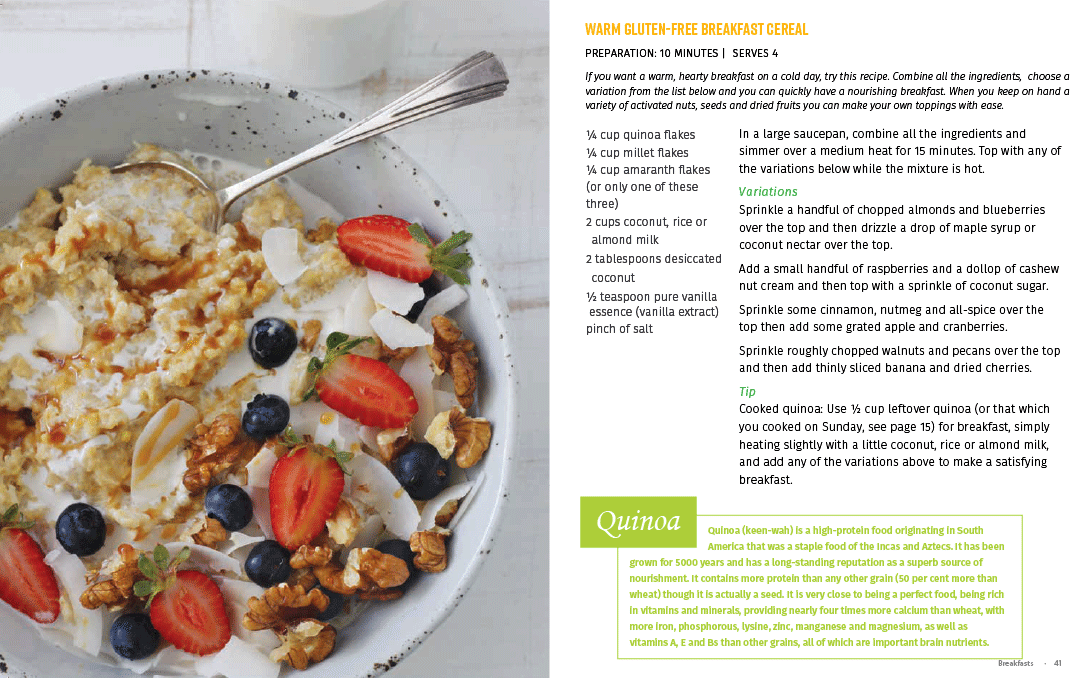
What's for lunch?
Leftover’s are a fantastic idea for lunch! It saves all that decision-making for more important tasks afterall! If you are stuck for lunch ideas though, why not try this?
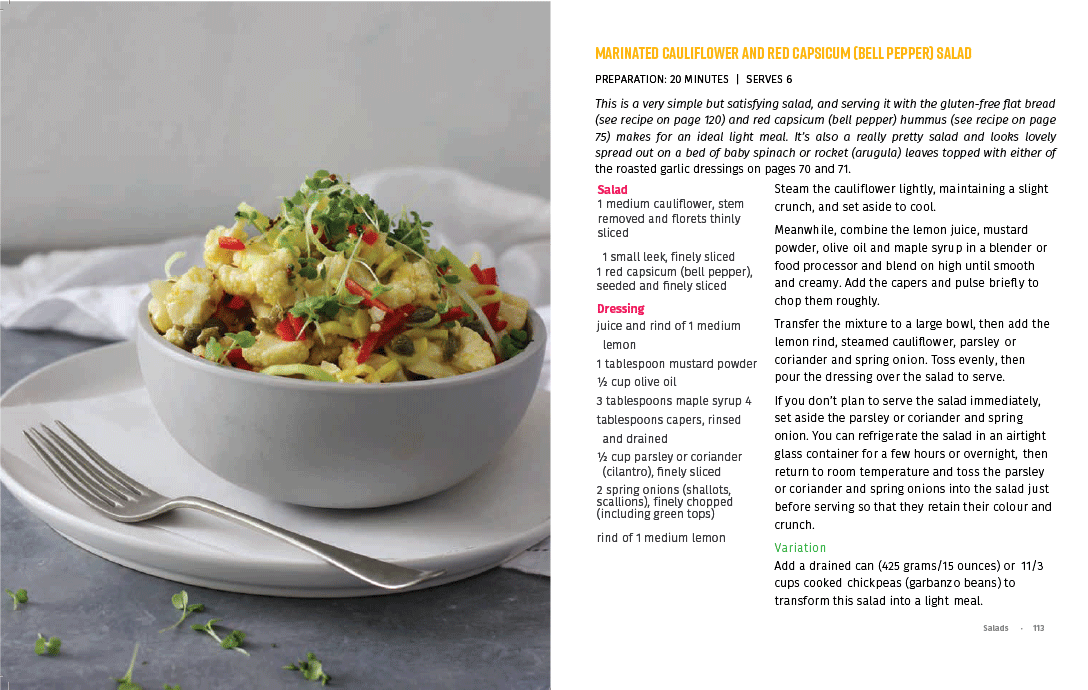
Dinner Time!
Main meals that leave you feeling too full and tired are not a great idea, but the plantbased main meals found in Feed Your Brain: The Cookbook won’t do that. When you are used to eating large meals it may come as a shock to discover that you don’t need to eat vast quantities of food to feel satisfied. And over time, you will find yourself preferring to eat smaller main meals, and have more vegetables in the form of salads, as side dishes. The aim of food is to satisfy our taste buds and provide us with nutrients.
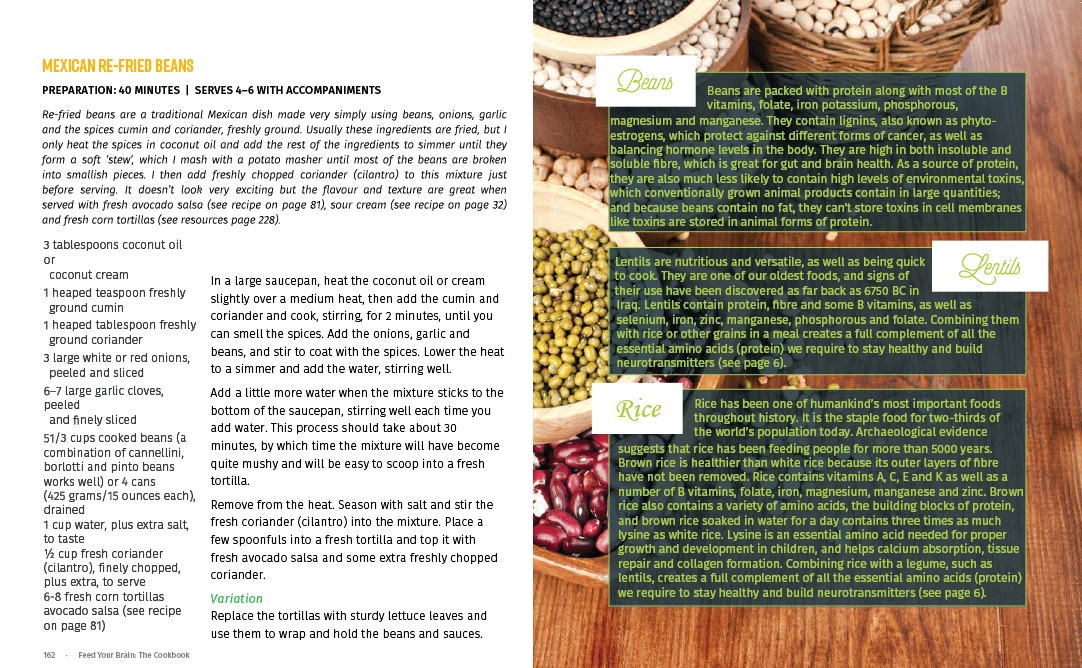
But, what about sweets and treats I hear you ask?
When you make the decision to eat according to your health it’s easy to end up feeling deprived, especially with regards to sweet treats. And the brain doesn’t like that feeling at all. However, if you have the basic ingredients for healthy snacks in your pantry, then it’s really easy to make sweet treats in as little as 10 minutes and baked treats in less than half an hour.
Keep in mind, though, that these foods are treats and should not be consumed in vast quantities — although, being nutrient dense and containing good fats they are very satisfying and it’s therefore hard to over-indulge! Remember, it’s best to avoid treats containing chocolate after 4 p.m., because the theobromine in chocolate is a stimulating compound and can interfere with sleep.
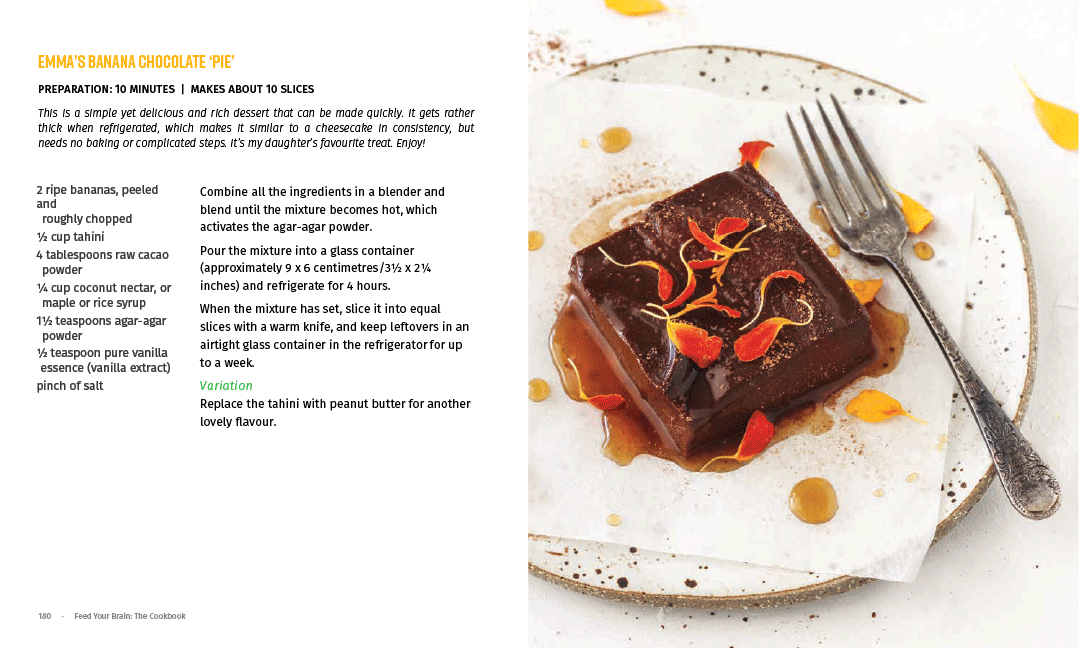
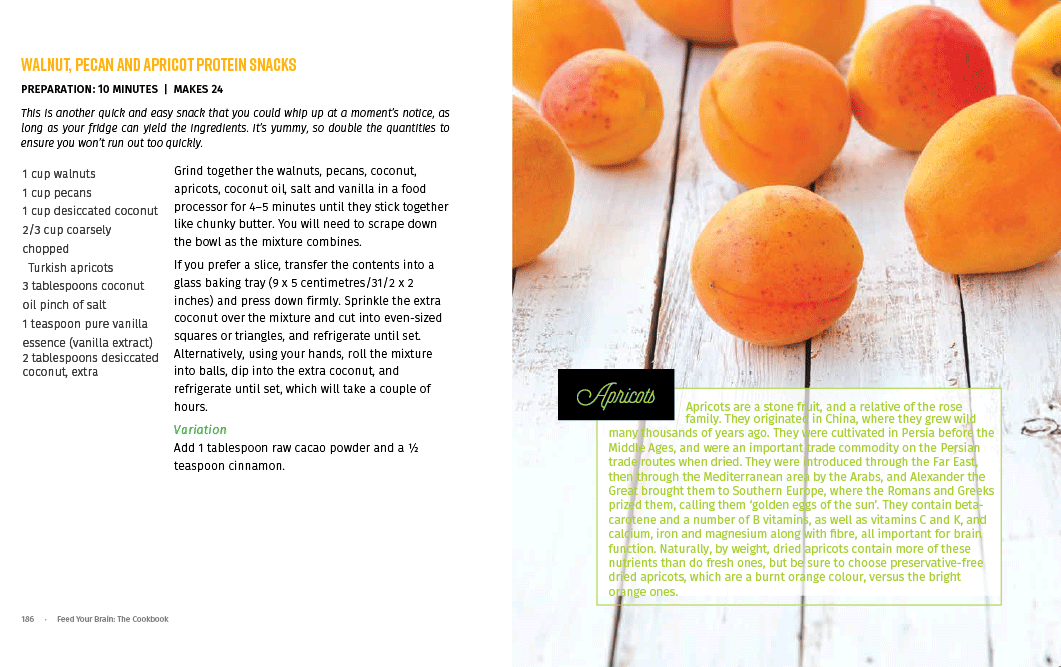
Summary
The aim of these tips from Feed Your Brain, along with the recipes in Feed Your Brain: The Cookbook, is to enable you to prepare delicious, simple, healthy, nutrient-dense and brain-healthy meals and snacks with minimum fuss and time. You can mix and match most of the recipes with different dressings and seasonal vegetables, and add toppings according to the variations described beneath most recipes, so you will end up creating new meals and delicious combinations if you simply trust yourself to do so and experiment a little with new flavours, textures and tastes. Delia’s mix-and-match approach increases nutrient density, variety and flavour with ease and also saves loads of time. The added bonus is that you become more creative with food and start to trust your instincts for which foods complement each other and help your brain function.
Lets be real, you’ll always have stresses in your life, but through simple dietary changes, you can help your brain have the best fighting chance to help you deal with stress in a way that will benefit your long term wellbeing. Less stress means more concentration on the things you love most!

